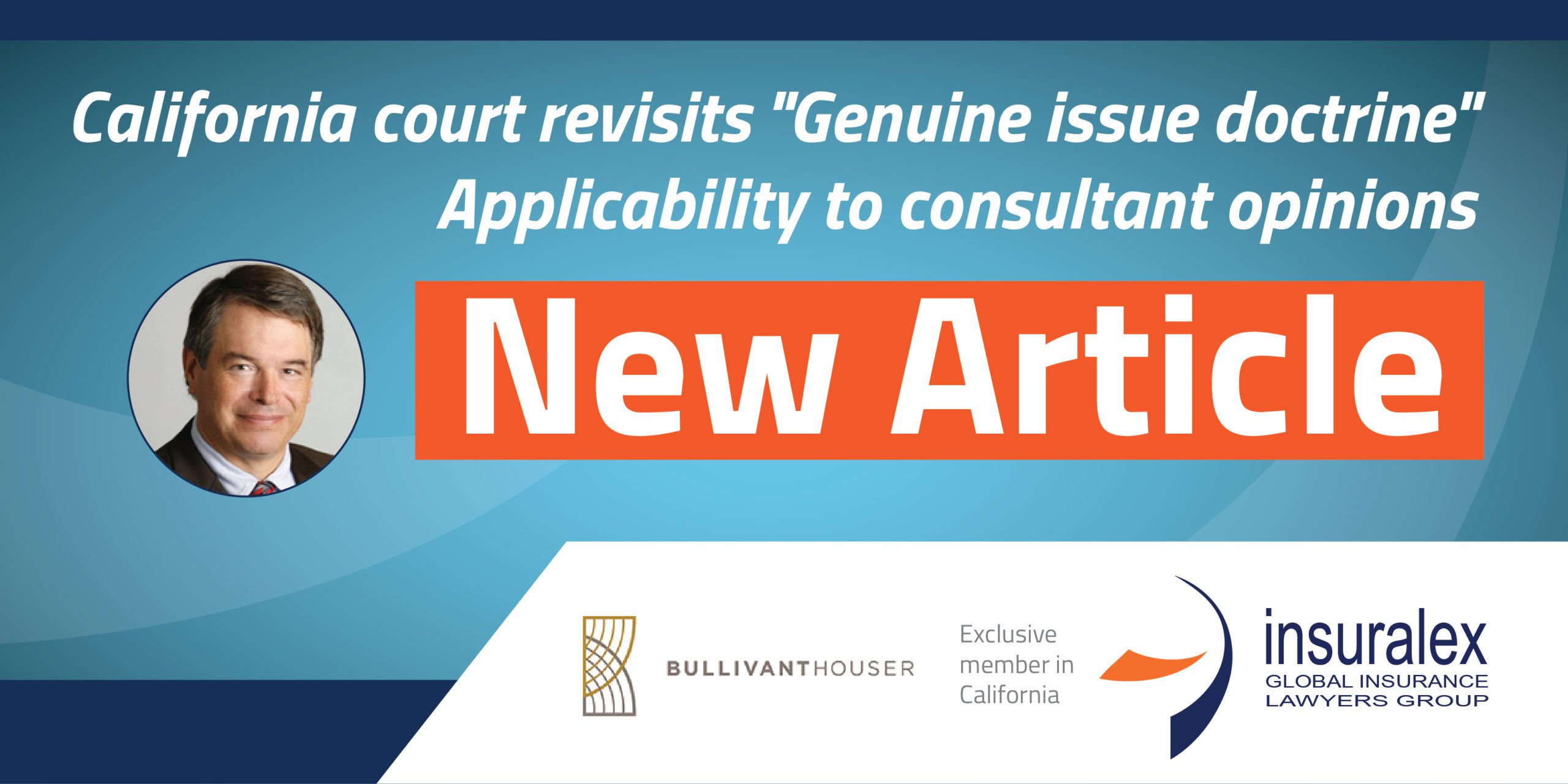
Andrew B. Downs
In California, an insurer breaches the implied covenant of good faith and fair dealing when it unreasonably and without proper cause deprives the policyholder of contractual benefits.
For about twenty years, insurers in California have been able to use the existence of a “genuine issue” as to coverage as a ground for rebutting both the unreasonable and the without proper cause elements of bad faith liability. Often that defense is based upon the insurer’s reliance on the opinions of an expert consultant.
A recent California Court of Appeal decision reminds us having a favorable expert opinion is not necessarily enough, particularly when there are issues about the scope of that opinion and its relevance in light of other information in the insurer’s claims file. In Fadeeff v. State Farm General Ins. Co. the appellate court reversed a summary judgment in favor of State Farm. Fadeeff was a “Valley Fire” property insurance claim for smoke damage to the policyholders’ home. After some initial payments, the insurer denied the claim for additional smoke damage. The appellate court’s reversal was based on the existence of material factual disputes, thus it did not find any bad faith, it only found evidence that could support a claim for bad faith.
The court’s observations about the claim handling will not make it any easier to prove a genuine issue defense in the future. First, State Farm did not follow its own internal procedures for expert retention. Second, the scope of the expert’s assignment and work was not broad enough to support the conclusions the insurer drew from its report. Third, the adjuster who declined the claim did so on the basis of a single expert report which allegedly was inconsistent with a prior adjuster’s physical observations.
The appellate court also reversed a summary judgment in favor of the insurer on punitive damages. What’s interesting about the court’s reasoning is how it treated the insurer’s argument that it could prove the absence of evidence to support a punitive damages claim solely with testimony from the policyholders. The policyholders had testified they did not get a feeling that State Farm wanted to hurt them or refused to return their calls or respond to correspondence. The court concluded reliance on the individual policyholders’ testimony was not enough to meet the insurer’s burden of showing the policyholders could not prove malice, oppression or fraud because there was other evidence to support those allegations.
Fadeeff doesn’t eliminate the genuine issue doctrine. But, it is a good example of a court looking at the totality of the claim handling and not limiting its examination to a single expert report. Some of the lessons from this decision really are not new, but they are a good reminder:
- An expert opinion is only as good as the questions asked.
- If there are internal procedures regarding the instructions to be given to a consultant that are not followed, that may affect the value of the resulting report.
- Claims professionals need to know the file, especially when someone else handled it before.
AUTHOR: Andrew B. Downs

Shareholder, San Francisco Office
Direct Dial: 415.352.2716
Fax: 415.352.2701




